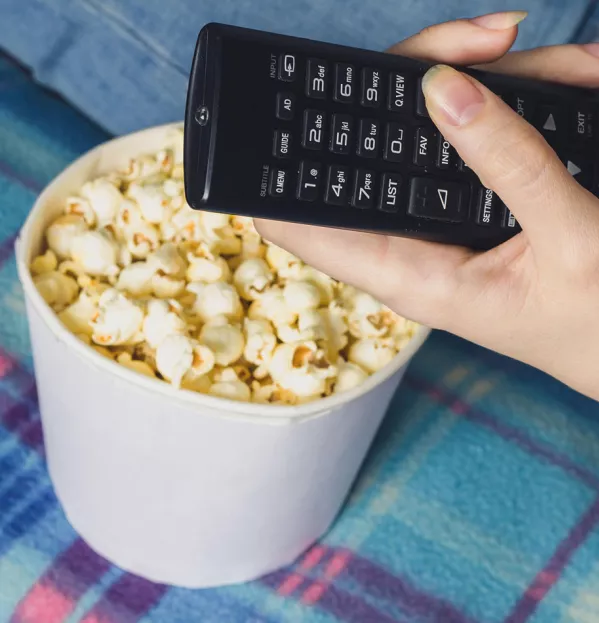Education is like the cinema, not Netflix: communal

In a recent BBC interview, Jodie Foster, one of the most talented actors of her generation, opined that Covid had accelerated the death of cinemagoing as we know it. Some multiplexes would remain, she predicted, but only for superhero films and other mega-hyped franchise fodder. You want to see a character-driven drama or a quirky indie comedy? Get your popcorn from the microwave and sink into your sofa, because soon that’ll be the only place to watch such fare, reckoned Foster.
It’s typical of a frankly alarming trend that Covid has simply sped up: the retreat into our homes and the withering of reasons to leave them. Remote learning has been the norm for much of the past year, of course, but everything from shopping and live sport to religious gatherings and funerals has been shunted online. Much will eventually return to something like it was, but it’s hard to escape the feeling that we are in the midst of a paradigm shift, where the home becomes less a retreat after the endeavours of the day than the fulcrum around which every aspect of life revolves.
We should not, of course, throw our hands up and bemoan the death of civilisation - there are upsides to some aspects of the domestication of all corners of our lives. Plenty of people have told us, for example, that for all the frustrations of home learning, there are clear benefits in teachers’ new-found tech expertise, in better collaboration between schools and families, in the greater understanding of what a teacher’s job actually involves.
Look also at the dearth of education conferences in the past year - how much have they really been missed? The most recent online conferences we’ve been invited to have been done and dusted in an hour, and that felt fine: pretty much every in-person education conference I’ve ever been to could have covered the same ground more satisfactorily in half the time. If the bloat of such events is gone forever, that’s no bad thing. The problem, however, is that we don’t just head out through our front doors to consume stuff; there’s far more to it than that. Vacuum-packed gourmet dinners, high-definition feeds of West End premieres, nifty online education seminars - they can all work well, but they lack something essential: real-world human connection. Communal and face-to-face experiences are essential to our sense of being, and they allow nuance in human relationships that is removed by a laptop screen.
We don’t just go to the cinema to stroke our chins about Meryl Streep or Denzel Washington’s Oscar-winning performances; we go for the exhilaration of shared fear, sadness or triumph. And we don’t just travel to a conference to hear some guru trotting out the toplines of their latest book; between sessions, we catch up with old friends and forge new connections.
Schools have been ahead of the curve in closing off opportunities for shared experience: witness the long, slow death of the school staffroom. The staffroom at the secondary I attended from 1987 to 1993 was, amid the fug of nicotine and instant coffee, abuzz with people and conversation - whenever you got a rare glimpse of this inner sanctum, you saw the thrumming engine room of a place of learning.
Staffrooms are quieter now, if they exist at all, with many teachers rarely venturing beyond their department. Sharon McLellan, president of primary school leaders’ body AHDS, describes the staffroom as “a safe haven where opinions can be shared and aired”. Yes, you can schedule a meeting on Zoom, but online communication is ordered and timetabled, the discussion topics carefully curated - a far cry from the sporadic creativity of chance conversations in the staffroom.
Being at home all the time may be cheaper and, in many ways, more convenient, but education - like life in general - is infinitely richer when we can step outside.
@Henry_Hepburn
This article originally appeared in the 9 April 2021 issue under the headline “Education is a blockbuster at the cinema, not Netflix on your sofa”
You need a Tes subscription to read this article
Subscribe now to read this article and get other subscriber-only content:
- Unlimited access to all Tes magazine content
- Exclusive subscriber-only stories
- Award-winning email newsletters
Already a subscriber? Log in
You need a subscription to read this article
Subscribe now to read this article and get other subscriber-only content, including:
- Unlimited access to all Tes magazine content
- Exclusive subscriber-only stories
- Award-winning email newsletters
topics in this article



